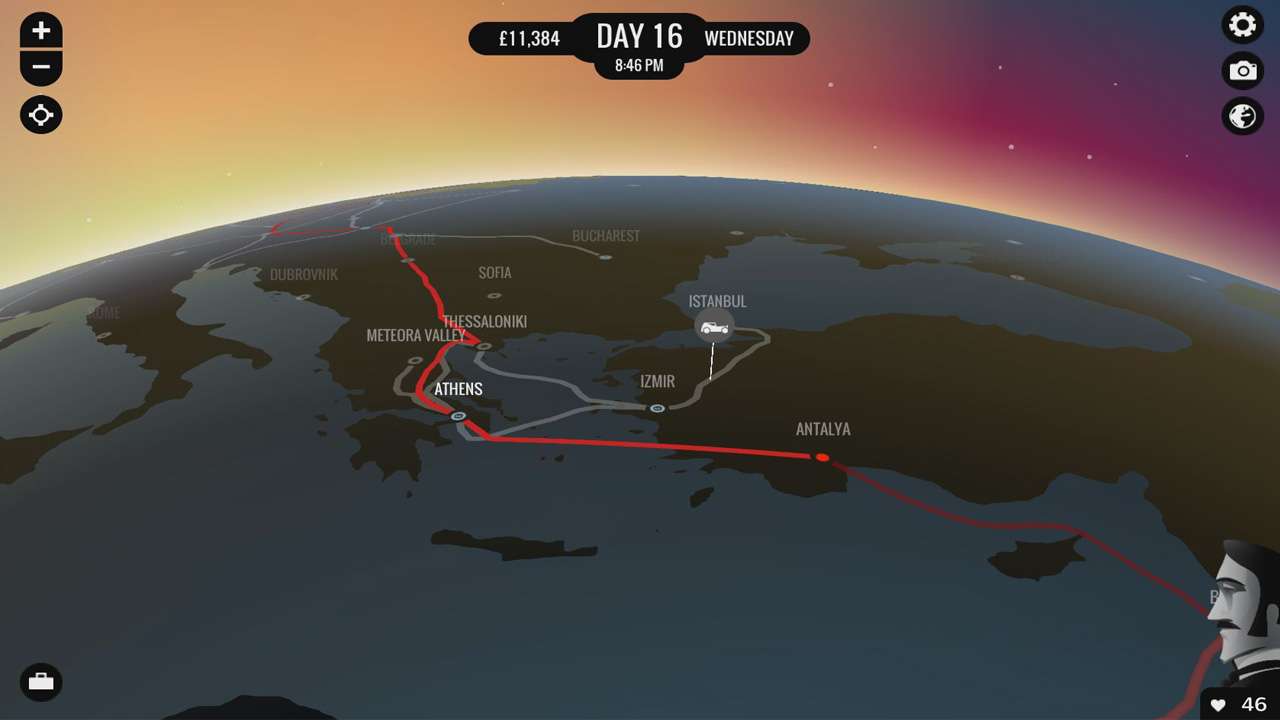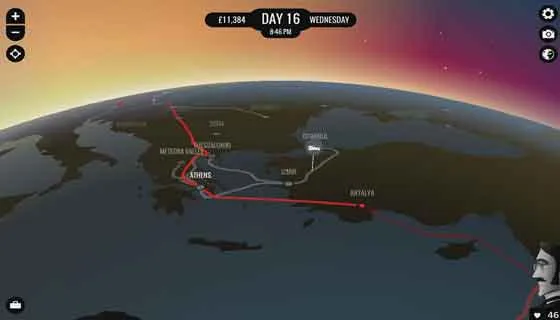
In the 21st century, circling the globe is as easy as hopping on a jetliner and enjoying the ride. But globetrekking was once a perilous journey wrought with unexpected bumps and the ever-present potential for catastrophe.
80 Days is a game that takes place at the height of the Second Industrial Revolution. It’s an era of great promise yet filled with political instability and social anxieties as nascent technology supplants the simpler, largely agrarian lifestyles of the past. The game brilliantly mixes historical events from this time period with a steampunk alternate universe.
You play Jean Passepartout, a young French servant to a British aristocrat named Phileas Fogg. Fogg, who is prolific among London’s upper class, wagers that he can circle the planet in a mere 80 days. Whether you can pull off the gambit is entirely dependent on your choices in the game.
Players start off in London and work their way across Europe. One of your first choices will be whether to trek across northern Europe and go into Russia, or venture further south — either into Africa or through Turkey into the Middle East.
Getting from Point A to Point B is not as simple as going to your local car rental lot. This is the late 1800s where transportation options are fairly limited. The availability of various forms of transit depends on the location and also on the connections that you make throughout the game. But there are also some steampunk inventions available to players that would otherwise be ahead of the time period like airships and automobiles.
Exploring cities, meeting new people, and building a rapport with strangers can provide dividends in your quest, often leading to new potential routes for your journey and even side quests that may result in cash. Shopping for goods and reselling them in specific cities where demand is high can result in a hefty return on investment. The cash that you make will be needed to pay for hotel rooms, items and transportation.
The game employs a text-based narrative that hearkens back to old-school text adventures. A majority of your time will be spent reading but there are also light strategy elements as well. Your goal, after all, is to span the globe in fewer than three months’ time. In order to do this, you will need to chart the most efficient paths possible, plan your time wisely, and manage cash reserves. You will also take into consideration potential pitfalls of particular routes as some are more dangerous than others.
80 Days is very much an interactive story with the player dictating plot elements through the selection of partial sentences and phrases, which clue you into the direction that things may go. However, the game — like real life — has a habit of being unpredictable. The unforeseeable nature of these outcomes is what makes 80 Days such a fascinating game to play. The cities that you visit, the encounters that you make, and the word choices all impact the ending. Each playthrough promises to be unique in its own way.
80 Days is a surprisingly deep experience. It is not just a story of adventure but one of expanding one’s worldview and growing as an individual. The characters in this game go through some harrowing trials and tribulations — and you can’t help but feel that you experienced it with them. Even if you’re not big on text adventures, the compelling storyline with multiple bending plot paths, the graphical style, and the sheer unpredictability all make for an entertaining experience.

